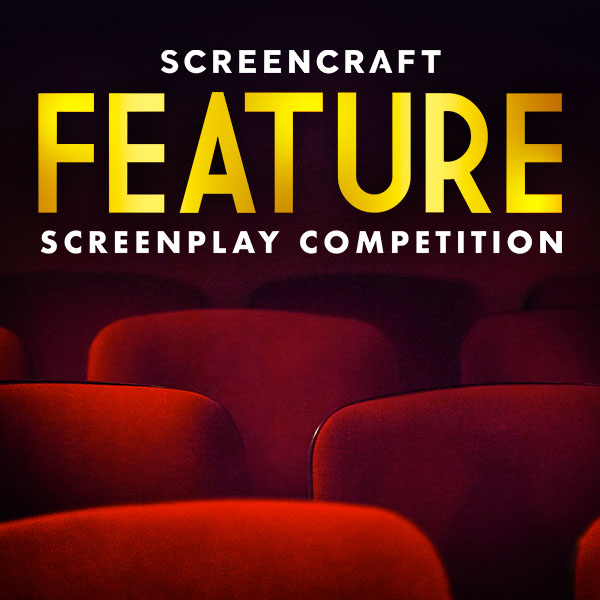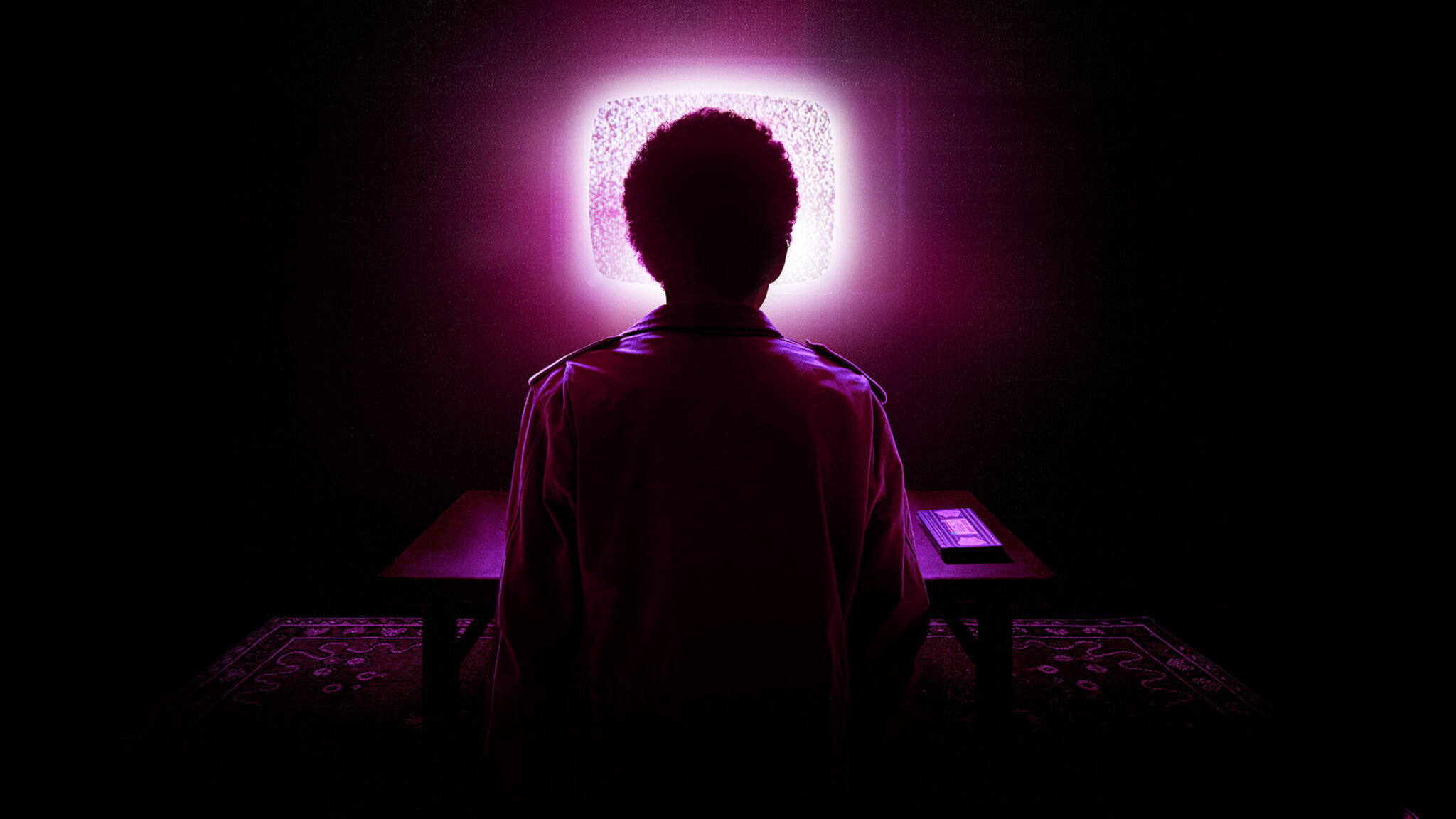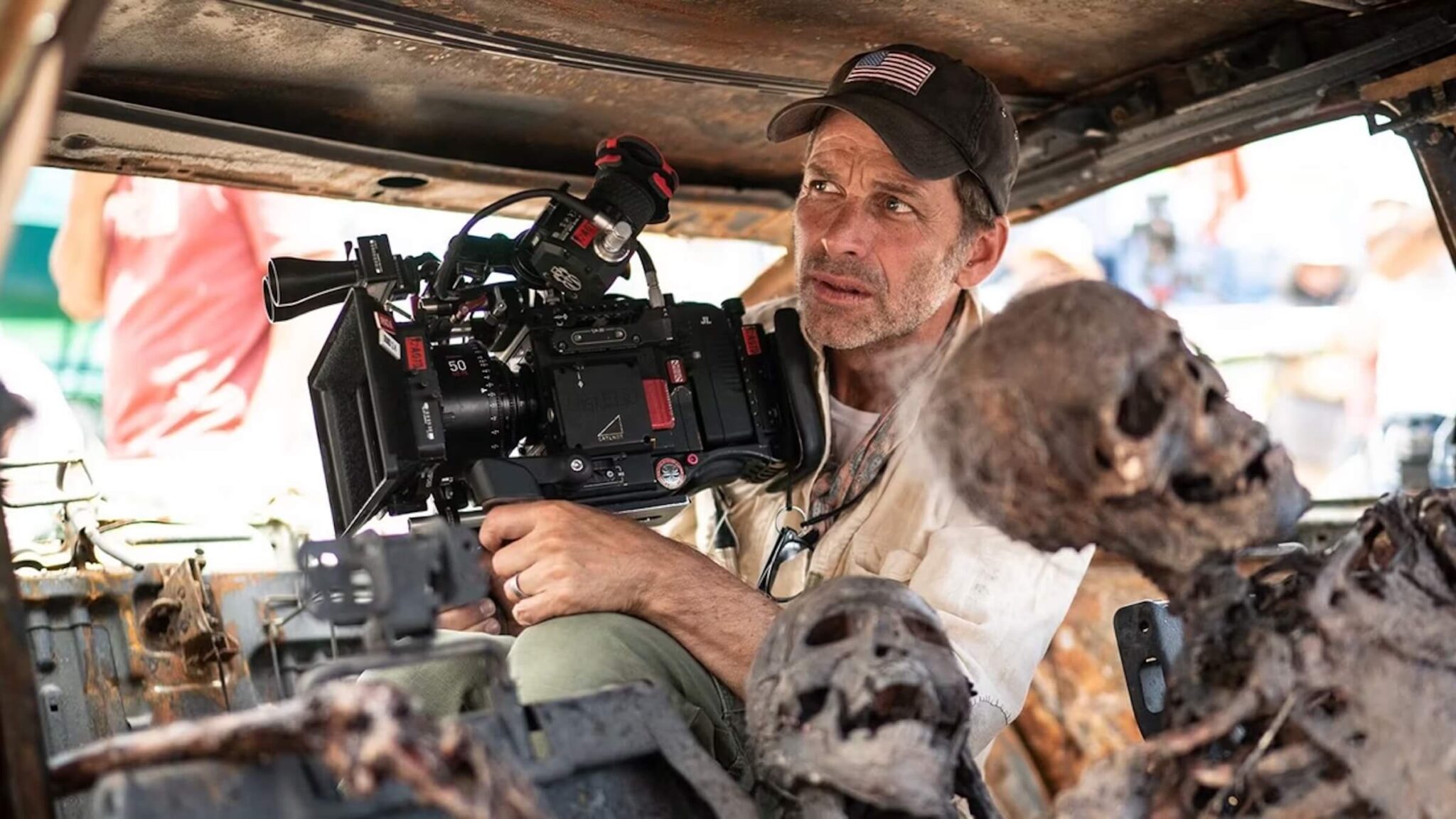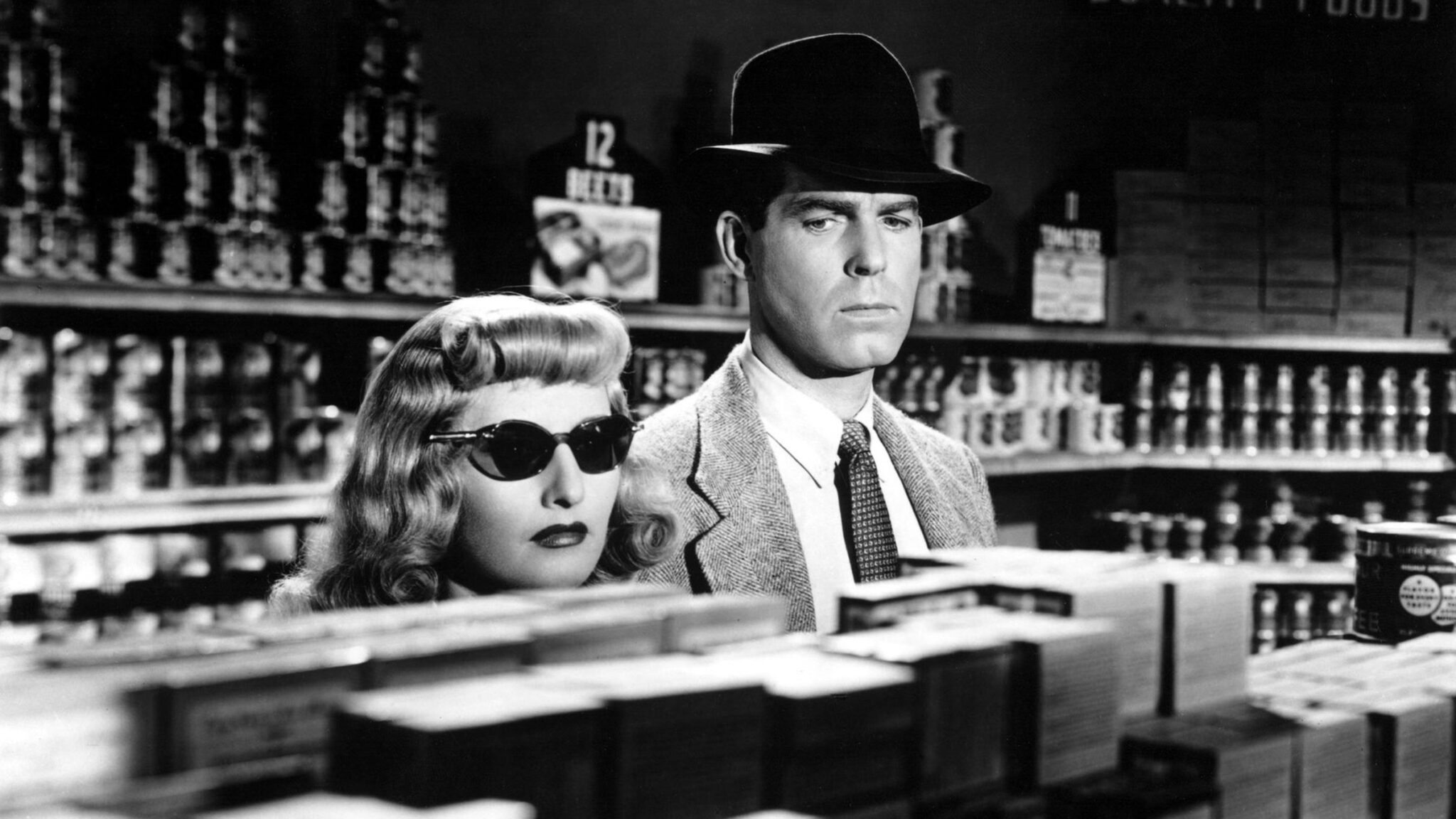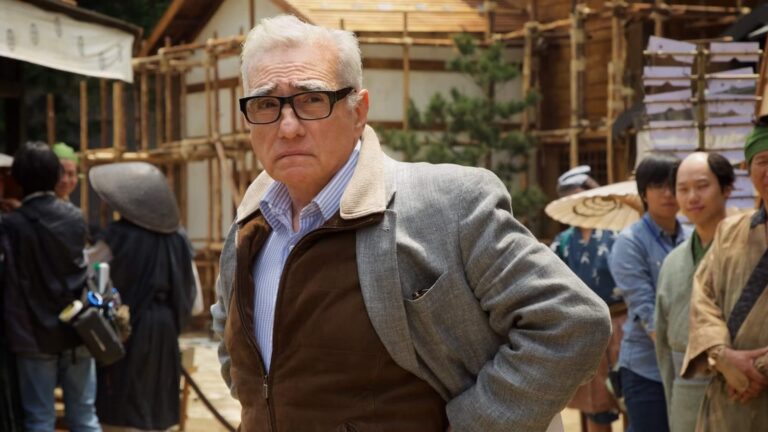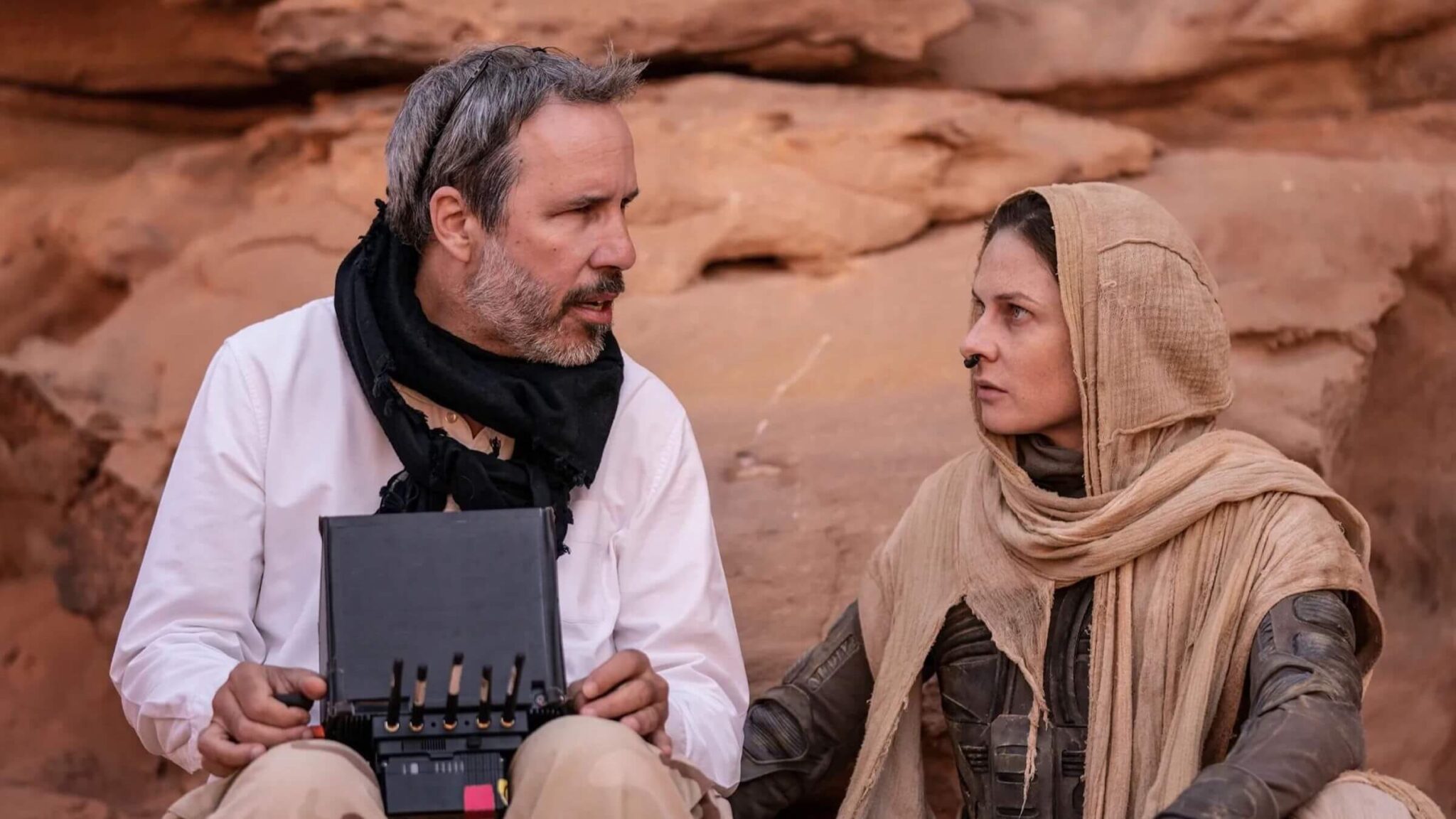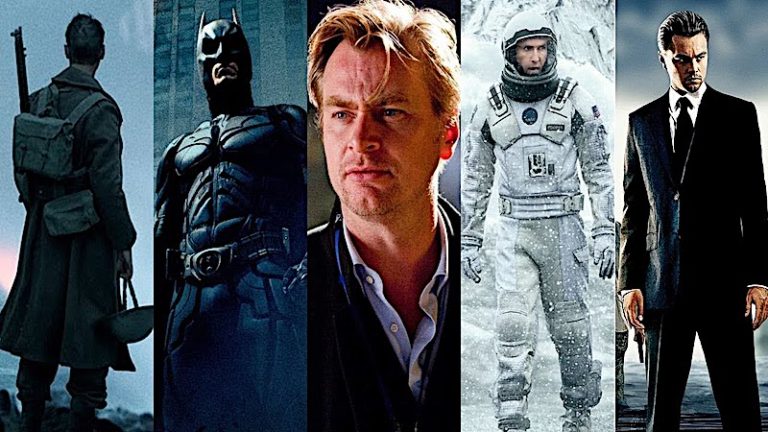
What screenwriting lessons can we draw from the words of one today's most celebrated visionary auteurs — Christopher Nolan?
Christopher Nolan is the visionary writer and director behind some of cinema's greatest and most imaginative cinematic stories.
His first feature, Following, was produced for just $6,000. The noir thriller received international recognition through several film festivals and offered Nolan the credibility he needed to put together the substantial financing for his next film — Memento.

He wrote and directed that film, which showcased a structural style that most had never seen in a film, essentially telling the story from end to beginning. The film garnered Academy Award and Golden Globe Award nominations for Best Original Screenplay.
Nolan would go on to direct the psychological thriller Insomnia, starring Al Pacino, Hilary Swank, and the late Robin Williams, followed by his first foray into big studio filmmaking with Batman Begins — the first reboot of the franchise.

The film was applauded by critics and moviegoers, leading to the followup The Dark Knight, which would go on to become one of the most celebrated comic book adaptations of all-time, leading to an Academy Award for Best Supporting Actor for Heath Ledger, who passed away before the film's release.

The film received eight Academy Award nominations.
The Prestige was co-written and directed by Nolan between the two Batman films. The mystery thriller starring Christian Bale and Hugh Jackman was a unique and critically-acclaimed project that showcased Nolan's knack for original stories.

After the success of The Dark Knight, Nolan was given full control over his next original feature, Inception, which would go on to garner over $800 million worldwide.

He closed off his Dark Knight Trilogy with The Dark Knight Rises, which offered him the opportunity to write and direct yet another unique and original feature in the underappreciated Interstellar. It went on to gather positive reviews and strong box-office results, grossing over $670 million worldwide.

Nolan turned to history for his next screenplay. Dunkirk told the story of allied soldiers from Belgium, the British Empire, and France as they are surrounded by the German Army, waiting for evacuation during the fierce battle in World War II. The praised film was nominated for eight Academy Awards, including Best Picture and Best Director.

Here we feature some of Christopher Nolan’s greatest quotes on directing, writing, and cinematic storytelling as a whole — followed by our own elaboration.
"Breaking rules isn’t interesting. It’s making up new ones that keeps things exciting."
So many screenwriters are interested in how they can break the rules to shock the industry and audiences. Nolan points out an intriguing new concept — creating new ways to tell cinematic stories.
This is something that Nolan has prided himself on throughout his career.
Before Memento, we had never seen a movie with that type of unique structure and narrative.
The Dark Knight gave us a superhero movie as we had never seen before — embedded in reality and film noir.
Inception and Interstellar offered new types of big spectacle movie-making — merging high concept with strong, emotional, and cathartic storylines and characterization.
Dunkirk shifted what could have been an otherwise standard war epic into a well-structured story of tension and suspense.
Don't worry about breaking rules to become noticed. Create new things instead. Give Hollywood what they never knew they needed and wanted.
Read More: Barbenheimer: Why Are ‘Barbie’ and ‘Oppenheimer’ Battling at the Box Office?
"I don't actually tend to do a lot of research when I'm writing. I do know because I think a lot of what I find you want to do with research is just confirming things you want to do. If the research contradicts what you want to do, you tend to go ahead and do it anyway."
This is a masterful approach to research.
Research shouldn't dictate your story and the way you write it. Instead, it should back up what you plan to do in the first place.
"What I try to do is write from the inside out. I really try to jump into the world of the film and the characters, try to imagine myself in that world rather than imagining it as a film I'm watching onscreen. Sometimes, that means I'm discovering things the way the audience will, with character and story."
Yet another example of Nolan's unique approach to his craft. Most writers do their best to visualize the film as if you're watching it onscreen. That's a great and necessary beginning.
But to actually place yourself in that world allows you to create cathartic and empathetic moments that everyone can relate to.
"Writing, for me, is a combination of objective and subjective approach. You take an objective approach at times to get you through things, and you take a subjective approach at other times, and that allows you to find an emotional experience for the audience."
The most skilled screenwriters have the ability to be objective of their own work — that's one of the pinnacle stages of the art, craft, and business of screenwriting. When you can look upon your pages and objectively view them, you can make the difficult decisions that you need to make to create a better screenplay.
When you're subjective about elements of your work, you're inserting your own likes, passions, and emotions — all of which are likely to touch the hearts of audience members as well.
"You’re never going to learn something as profoundly as when it’s purely out of curiosity."
When you're choosing your next project, try to find something that centers on a subject, character, or world that spikes your curiosity.
Some of the most compelling concepts are born through What If questions. When you find an amazing question to answer, your curiosity will drive you to explore possible answers — all of which leads to great stories and characterizations.
Read ScreenCraft's 101 “What If…” Story Writing Prompts!
"You need time. And that doesn’t mean necessarily even working full-time on it itself — it means time to throw some ideas together and then let them sit, go off and do something else, come back and see what still feels right and everything."
One of the worst things that you can do as a screenwriter is rush into a project once the idea comes into your head.
That concept has to grow. It's a seed that needs to be watered, fed, and given time to blossom.
When you have a concept or visual haunting you, let it be. Go on long walks or car rides. Daydream. Start attaching story elements and characters to the concept to see what sticks.
"Why do we fall? So we can learn to pick ourselves back up."
Failure and rejection suck, but they teach us how to prevail in the end. They are necessary. Embrace failure and learn from it.
"One of the things you do as a writer and as a filmmaker is grasp for resonant symbols and imagery without necessarily fully understanding it yourself."
It's misleading advice when pundits say that you have to know every single thing about your characters, story, and the visuals you utilize within your screenplays.
Presenting resonant symbols, imagery, character types, and story elements that you don't fully understand is perfectly fine when those things resonate with audiences. Learn what you can about them and make sure that they are there for a reason, but don't be fearful when you don't exactly know everything about them.
"It's about using things that audiences can relate and respond to that matters most, even if you don't fully understand them. You never quite know what you’re going to come back to and figure out how to make it work. You never quite know where that desire to finish something or return to something in a fresh way, is going to come from."
Established screenwriters and filmmakers don't have some magical ability to create brilliance out of thin air. They have to work at it just like you do.
"I try to be as efficient as possible because, in my process, I think that actually helps the work. I like having the pressure of time and money and really trying to stick to the parameters we’ve been given."
Deadlines push you to work more efficient. The worst possible scenario that a screenwriter lives in is full freedom of time and money. You'll never finish anything because nothing is pushing you.
When you write, consider training yourself to write like a professional screenwriter. Professional screenwriters usually only have ten to twelve weeks to finish a screenplay — if that.
Instead of taking six months to a year to finish your next script, give yourself only two to three months. And when you become efficient in that time frame, try to do the next one in a month.
You're mirroring the constraints that professionals deal with. Hence, you're training yourself to write like a professional.
"Everybody’s situation is unique, and the one thing I’ve learned is that instead of copying someone else’s model for a low-budget film, you really have to look at what you’ve got available and see how you can tell the story you want to tell, using the things that you have around you."
While it's great to study the cinematic upbringing of your favorite screenwriters and directors, you need to understand that you'll never be able to emulate their success by doing what they did.
You have to look at what's available to you and tell the story that you want to tell with the things that you have around you in your life.
"If you can get a little bit of attention, a little bit of success on the festival circuit, people say, 'Well, what would you want to do next?' And the tricky thing is, if you don’t have a specific thing, you can’t capitalize on that moment."
This is necessary for filmmakers attending festivals and for screenwriters going the contest or fellowship route (as well as attending writing conferences).
Industry insiders will always be asking about what's next or what else you have. Be prepared to answer those questions at the drop of a dime.
Read More: How Oppenheimer Created a CGI-Free Atomic Blast
Ken Miyamoto has worked in the film industry for nearly two decades, most notably as a studio liaison for Sony Studios and then as a script reader and story analyst for Sony Pictures.
He has many studio meetings under his belt as a produced screenwriter, meeting with the likes of Sony, Dreamworks, Universal, Disney, Warner Brothers, as well as many production and management companies. He has had a previous development deal with Lionsgate, as well as multiple writing assignments, including the produced miniseries Blackout, starring Anne Heche, Sean Patrick Flanery, Billy Zane, James Brolin, Haylie Duff, Brian Bloom, Eric La Salle, and Bruce Boxleitner. Follow Ken on Twitter @KenMovies
For all the latest ScreenCraft news and updates, follow us on Twitter, Facebook, and Instagram.
Tags
Get Our Screenwriting Newsletter!
Get weekly writing inspiration delivered to your inbox - including industry news, popular articles, and more!


